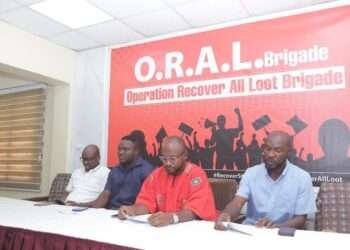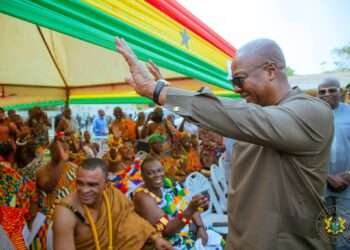As Ghana prepares for its 2024 elections, the government and citizens must recognize the growing threat of mis/disinformation and propaganda narratives. In recent years, the rise of social media and the ease of information dissemination have made it increasingly challenging to separate fact from fiction.
Fatimatu Abubakar, the Minister of Information Designate, has emphasized the importance of media literacy programs in educating the public. These programs aim to empower individuals to distinguish between reliable information and falsehoods. This initiative is part of a broader effort to enhance media capacity and promote informed public discourse.
“The Ministry of Information has taken the lead in bringing together stakeholders in Ghana’s media landscape to draft a National Action Plan— a blueprint for combating misinformation and disinformation at its roots. The enactment of the Right to Information Act, 2019 (Act 989), is a pivotal measure in addressing misinformation in Ghana because it has the potential to significantly diminish the spread of inaccurate content.”
Fatimatu Abubakar, the Minister of Information Designate
The Minister of Information designate, Fatimatu Abubakar, at the Media Foundation for West Africa (MFWA) forum on Countering Mis/Disinformation and Propaganda Narratives in Ghana’s 2024 Elections noted that Ghana’s media literacy program aims to educate the public on critical thinking, source evaluation, and verification, empowering individuals to discern reliable information from falsehoods.
This initiative is crucial in the context of Ghana’s hyper-choice media systems, where the rapid spread of information, including fake news and disinformation, poses significant challenges to the public’s ability to critically evaluate media content.
Citizens should be equipped with the skills needed to critically evaluate information sources, fact-check claims, and identify misleading narratives. By promoting media literacy through educational campaigns, workshops, and partnerships between government, civil society, and media organizations, Ghana can empower its citizens to navigate the information landscape more effectively.
Additionally, the Minister indicated that fact-checking plays a vital role in countering mis/disinformation and propaganda narratives. The government should invest in independent fact-checking organizations that can verify claims made during the electoral campaigns.
“Acknowledging when media outlets engage in mis[dis]information is crucial for upholding democracy as it promotes accountability, transparency, and informed public discourse,” the Christian Council of Ghana stated.
These organizations should be adequately funded, have a wide reach, and collaborate with media outlets to ensure accurate information reaches the public. Fact-checking initiatives should be transparent, non-partisan, and easily accessible to the public.
Mis[Dis]information, Grave Threat to Democratic Principles
Mis/disinformation and propaganda narratives can have severe consequences for democratic processes. They can manipulate public opinion, undermine trust in institutions, incite violence, and ultimately distort electoral outcomes. Ghana, like many other countries, has witnessed the harmful effects of such tactics in the past.
Albert Kwabena Dwumfour, GJA President at the forum stated “Proactive measures against mis[dis]information is crucial in today’s digital landscape before, during and after the general elections.”
“The proliferation of false information, deliberate misinformation campaigns, and insidious propaganda narratives has posed a grave threat to the democratic principles upon which our nation was founded. These acts, often propagated through various channels including social media, traditional media, and word-of-mouth, seek to undermine the trust and confidence of our electorate and sow seeds of discord among our citizens.”
Fatimatu Abubakar, the Minister of Information Designate
The Christian Council of Ghana also emphasized that by holding media accountable, the country can strive for accuracy, integrity, and trustworthiness in reporting, which are essential for a healthy democracy.
“Mis(dis)information can lead to confusion, distrust, and even harm, undermining the very foundations of our democracy and public trust in institutions. The MFWA media monitoring shows that radio stations aligned to the NDC and NPP are the dominant platforms that fuel election-related hate speech in Ghana”
Kwaku Asante Krobea, Lead, Fact-check Ghana
As the 2024 elections approach, Ghana must prioritize the fight against mis/disinformation and propaganda narratives. By implementing proactive measures such as enhancing media literacy, strengthening fact-checking mechanisms, regulating social media platforms, and fostering collaboration between stakeholders, Ghana can safeguard the integrity of its electoral process and protect the public’s trust. In doing so, the country will demonstrate its commitment to democracy and ensure fair and transparent elections for its citizens.
READ ALSO: Ghanaian Media’s Journey of Change





















